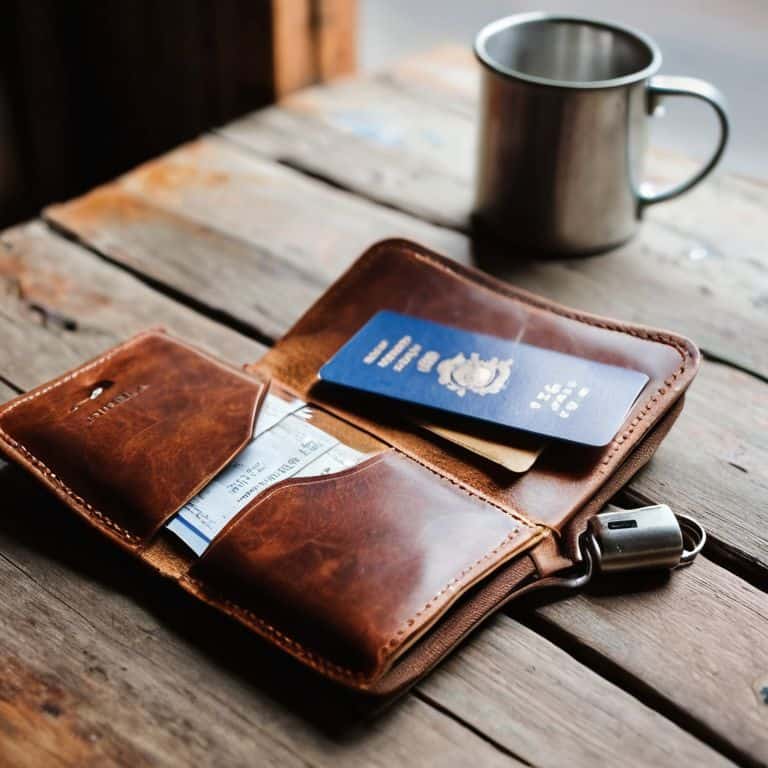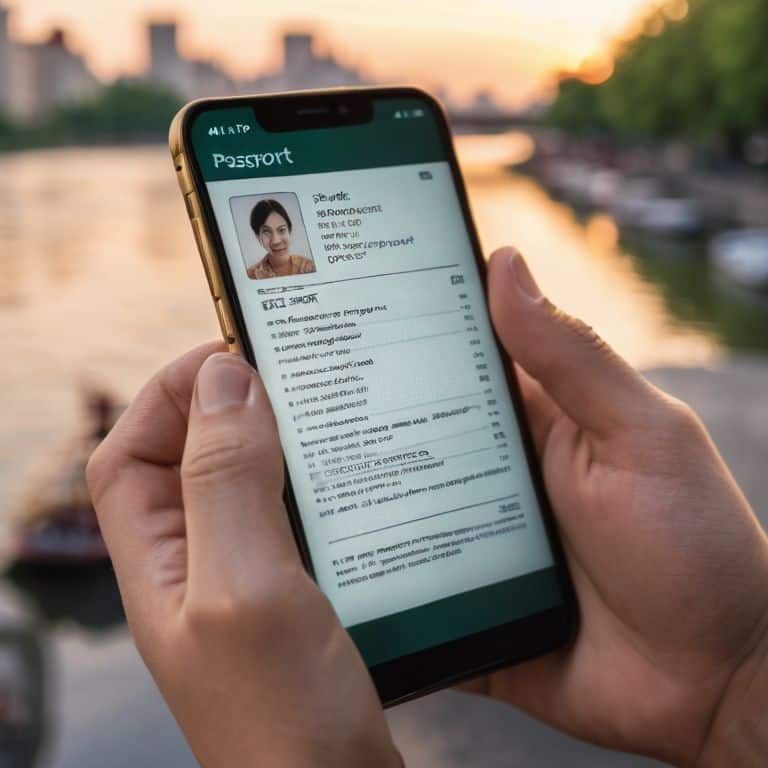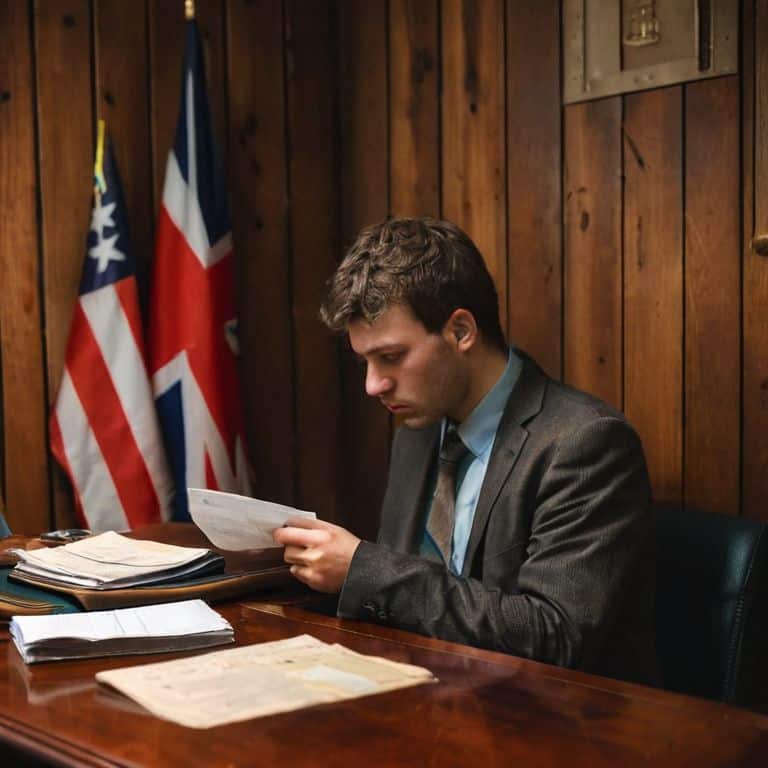I still remember the sinking feeling in my stomach when I realized I’d lost my passport abroad. It was as if my identity had been stripped away, leaving me a stranger in a foreign land. The thought of navigating bureaucratic red tape in a language I barely spoke was daunting, to say the least. But, as I soon discovered, losing your passport is not the end of the world – in fact, it can be a catalyst for a more authentic, immersive travel experience. When you’re forced to venture off the beaten path, you begin to uncover the hidden gems that lie beyond the tourist trail. So, if you find yourself in the unenviable position of wondering what to do if you lose your passport abroad, take a deep breath and let me guide you through the process.
As someone who’s been in your shoes, I’m here to offer you honest, no-hype advice on how to recover from a lost passport. In this article, I’ll walk you through the step-by-step process of reporting your loss, obtaining an emergency passport, and getting back on track with your travels. From my own experience, I’ve learned that it’s not just about following the rules, but also about being open to the unexpected twists and turns that come with traveling. By the end of this guide, you’ll be equipped with the knowledge and confidence to handle any passport-related mishap that comes your way, and maybe even discover a few hidden treasures along the way.
Table of Contents
- Guide Overview: What You'll Need
- Step-by-Step Instructions
- Lost in Transit
- Navigating the Unexpected: 5 Essential Tips for Losing Your Passport Abroad
- Navigating Passport Troubles: 3 Essential Takeaways
- Beyond Borders and Bureaucracy
- Beyond the Chaos: Finding Peace After a Passport Lost Abroad
- Frequently Asked Questions
Guide Overview: What You'll Need

Total Time: several hours to several days
Estimated Cost: $50 – $200
Difficulty Level: Intermediate / Hard
Tools Required
- Phone (for making calls to embassy or consulate)
- Computer (with internet access for filling out forms)
- Printer (for printing documents)
- Scanner (for scanning identification documents)
Supplies & Materials
- Passport photo (1-2 copies)
- Proof of citizenship (such as birth certificate or naturalization certificate)
- Government-issued ID (such as driver’s license)
- Travel itinerary (to prove travel plans)
- Police report (if passport was stolen)
Step-by-Step Instructions
- 1. First, remain calm and try to recall the last time you had your passport. This might seem like an obvious step, but it’s easy to panic when you’re in a foreign country and your most important document is missing. Take a few deep breaths, and think back to the last place you used your passport – was it at a hotel, a restaurant, or a local market? Try to retrace your steps, and you might be surprised at how often this helps you remember where you last had it.
- 2. Next, report the incident to the local police station. Even if you’re not sure if your passport was stolen or simply lost, it’s crucial to file a report. This will not only help you in case your passport was stolen, but it will also be required when you apply for a replacement. Be prepared to provide as much detail as possible, including the date and time you last used your passport, and a description of where you think you might have lost it.
- 3. Now, contact your home country’s embassy or consulate. They will be able to guide you through the process of obtaining a replacement passport, and in some cases, they might even be able to provide you with an emergency passport that will allow you to continue your travels. Be sure to have your passport number, or any other identification documents you might have, ready when you call. It’s also a good idea to visit the embassy’s website beforehand to see what specific documents and information they require.
- 4. While you’re waiting to hear back from the embassy, gather any necessary documents that you might need to apply for a replacement passport. This usually includes a photocopy of your passport, as well as any other forms of identification you might have, such as a driver’s license or birth certificate. If you have any travel plans, be sure to let the embassy know, as they might be able to expedite the process.
- 5. Once you have all the necessary documents, apply for a replacement passport. This can usually be done through the embassy or consulate, and they will guide you through the process. Be prepared to fill out some paperwork, and possibly pay a fee for the replacement. It’s also a good idea to ask about any additional requirements, such as providing a police report or proof of citizenship.
- 6. If you’re unable to get a replacement passport right away, consider obtaining an emergency passport or a limited-validity passport. These are usually valid for a shorter period, but they can be a lifesaver if you need to continue your travels. Be sure to ask the embassy about the specific requirements and any additional fees associated with these types of passports.
- 7. Finally, keep a record of all your interactions with the embassy, police, and any other authorities. This will not only help you keep track of the process, but it will also be useful in case you need to refer back to any of the conversations or documents. Make sure to save any email correspondence, and keep a note of the dates and times of any phone calls or meetings.
Lost in Transit

As I reflect on my own experiences with lost travel documents, I realize that preventing passport theft while traveling is just as important as knowing what to do when it happens. I’ve learned to be mindful of my belongings, especially in crowded areas or tourist hotspots, and to keep my passport secure in a safe or a money belt. It’s also a good idea to make digital copies of your important documents and leave a copy with a trusted friend or family member back home, in case you need to reporting a lost passport to the government or access your information remotely.
When dealing with foreign authorities without a passport, it’s essential to remain calm and patient. I’ve found that having emergency contact information for travelers handy can be a lifesaver, as it allows you to get in touch with your embassy or consulate for assistance. They can provide guidance on obtaining emergency travel documents quickly, which can help you get back on track with your journey. It’s also a good idea to learn a few key phrases in the local language, such as “I lost my passport” or “I need help,” to help you communicate with the authorities.
In the midst of chaos, it’s easy to overlook the importance of replacing a lost passport in a foreign country. However, it’s crucial to take care of this task as soon as possible to avoid any further complications. I’ve learned to prioritize this step and seek help from local authorities or my embassy to facilitate the process. By taking proactive steps to prevent passport theft and being prepared for any eventuality, you can minimize the stress and hassle of dealing with a lost passport abroad.
Obtaining Emergency Travel Documents Quickly
As I navigated the complexities of lost travel documents, I discovered the importance of emergency papers. In urgent situations, it’s possible to obtain temporary documentation, such as a limited-validity passport or an emergency travel document, from your home country’s embassy or consulate. This can be a lifesaver when you’re stuck in transit.
I recall waiting anxiously at the embassy, surrounded by the sounds of hushed conversations and rustling papers, as I waited for my emergency document to be processed. The process, though tedious, was a necessary step towards getting back on track. With the right paperwork in hand, I was finally able to board a flight and continue my journey, albeit with a few extra gray hairs.
Reporting a Lost Passport to the Government
As I navigated the complexities of a lost passport, I learned that reporting it to the government is a crucial step. I had to contact my home country’s embassy or consulate and provide them with as much information as possible about my lost passport. This included the passport number, issue date, and the circumstances surrounding its disappearance. The officials were helpful and guided me through the process, which was a relief. I was then issued a replacement passport, which allowed me to continue my journey without too much disruption.
Navigating the Unexpected: 5 Essential Tips for Losing Your Passport Abroad
- Make digital copies of your passport and important documents, and leave a copy with a trusted friend or family member back home – it’s a simple step that can be a lifesaver in a pinch
- Keep a record of your passport number, issue date, and expiration date, as well as the contact information for your home country’s embassy or consulate in the country you’re visiting – it’s crucial for getting help quickly
- Invest in travel insurance that covers passport loss and replacement – it may seem like an added expense, but trust me, it’s worth it for the peace of mind alone
- Know the location of your home country’s embassy or consulate in the country you’re visiting, and have a plan for how to get there if you need to – sometimes, it’s the little details that can make all the difference
- Stay calm and patient – losing your passport can be a frustrating experience, but it’s not the end of the world, and with the right mindset and preparation, you can get back on track and continue your journey with minimal disruption
Navigating Passport Troubles: 3 Essential Takeaways
Losing your passport abroad doesn’t have to derail your entire trip – with the right mindset and knowledge, you can navigate the process of reporting and replacing it with ease, all while continuing to immerse yourself in the local culture
Understanding the distinction between a lost passport and one that’s been stolen is crucial, as it affects the steps you need to take to report the incident and obtain emergency travel documents, allowing you to move forward with your journey
By embracing the unexpected twists and turns that come with traveling, including the loss of a passport, you can transform what might seem like a disaster into an opportunity to engage more deeply with the people and places around you, fostering a more authentic and memorable experience
Beyond Borders and Bureaucracy
Losing your passport abroad isn’t the end of your journey, but rather a detour into the uncharted territories of a place, where the true essence of travel – resilience, adaptability, and human connection – is waiting to be discovered.
Anika Sharma
Beyond the Chaos: Finding Peace After a Passport Lost Abroad

Losing your passport abroad can be a daunting experience, but with the right mindset and knowledge, you can navigate the situation with ease. To recap, it’s essential to stay calm and report your lost passport to the government as soon as possible. Obtaining emergency travel documents quickly is also crucial to get back on track. Remember, being prepared is key, and having a digital copy of your passport and important documents can save you a lot of hassle. By following these steps and staying informed, you can turn a potentially disastrous situation into a minor setback.
As you close this chapter and continue your journey, remember that unexpected challenges are an inevitable part of traveling. But it’s how you respond to them that truly matters. Losing your passport abroad can be a test of your character, but it can also be an opportunity to discover the resilience within yourself. So, take a deep breath, be kind to yourself, and know that you are capable of overcoming any obstacle that comes your way. And when you finally return home, you’ll have a story to tell that’s more valuable than any souvenir – a story of perseverance, adaptability, and the unbreakable human spirit.
Frequently Asked Questions
What are the most common mistakes to avoid when reporting a lost passport to the government?
When reporting a lost passport, I’ve found that people often overlook the urgency of acting quickly or mistakenly assume it’s a straightforward process. Common mistakes include not having required documents readily available, underestimating processing times, or not keeping a record of the report details – all of which can lead to unnecessary delays and stress.
How can I expedite the process of obtaining emergency travel documents if I'm in a remote area with limited access to embassy services?
When I found myself in a similar predicament in rural Mongolia, I relied on local tour operators who had connections with the embassy. They facilitated a speedy process for emergency travel documents, and I was back on the road within days. It’s crucial to build relationships with trusted locals who can help navigate bureaucratic hurdles in remote areas.
Will losing my passport abroad affect my ability to travel in the future or compromise my personal identity?
Losing your passport abroad can raise concerns about future travel and identity security. Rest assured, reporting and replacing a lost passport typically doesn’t affect your ability to travel in the future. However, it’s essential to monitor your credit reports and be cautious with personal documents to prevent identity theft.
